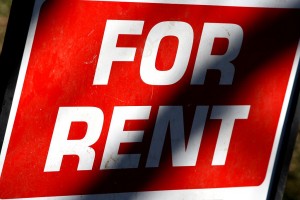Do you own a home and want to move but you don’t want to or can’t sell your home? Perhaps you’re looking to diversify your investment portfolio and want to venture into real estate. Becoming a landlord may be an option for you in either of these situations. It seems like a straight forward proposition: obtain a property to rent, find a tenant, and collect your rent. There is definitely more to it than that and you should examine yourself, your abilities, and your financial situation honestly before you dive head first into landlordship.

Financial Security
As the owner and most likely mortgagor of the property, you are ultimately responsible to meet all the financial obligations related to a property. The income from your rental property should cover the monthly expenses of the property. You should be in a position to be able to make monthly mortgage, insurance, and tax payments should your tenant fail to make rental payments on time or if your tenant moves out and you’re unable to find a replacement before the next payment is due. Be prepared to cover the cost of any unexpected repairs or legal fees, as well.
Maintenance and Availability
You’ll need to make yourself reasonably available to your tenant and the property. Depending on their needs, you may need to respond and visit the property almost immediately (think burst water pipe or the heater kicks out in the middle of the night). You may also need to visit the property to pick up the rent payment and maintain the landscaping. If you’re not handy, are short on free time, or don’t live within commuting distance of your property, consider hiring a management company to take care of routine maintenance, emergencies repairs, and collecting the rent.
Organization
Whether you realize it or not, as a landlord you’re a small business owner. You’ll need to keep an updated lease, records of each monthly rental payment, maintain an escrow account for the security deposit, and notate any repairs and damages made to the property during the term of a lease.
People and Business Skills
You’ll be dealing with people a lot during your tenure as a landlord and it won’t always be pleasant. You’ll need to interview potential tenants and determine who will be the best tenant for you. Should a dispute arise between you and the tenant, you’ll need to remain calm, cool, and collected even if your tenant does not. You also need to be able to make sound business decisions. You’ll have to enforce rules such as late fees, pet fees, and retain security deposits in the event of damage. You may even have to proceed with an eviction despite any story that may tug at your heart strings.
If you feel you can reasonably meet these qualifications, being a landlord may be right for you. Before you sign a lease though, talk with a licensed real estate agent for a valuation of your home and comparable rental prices. You should also consult an attorney for help drawing up the proper lease documents and tenant notices.
